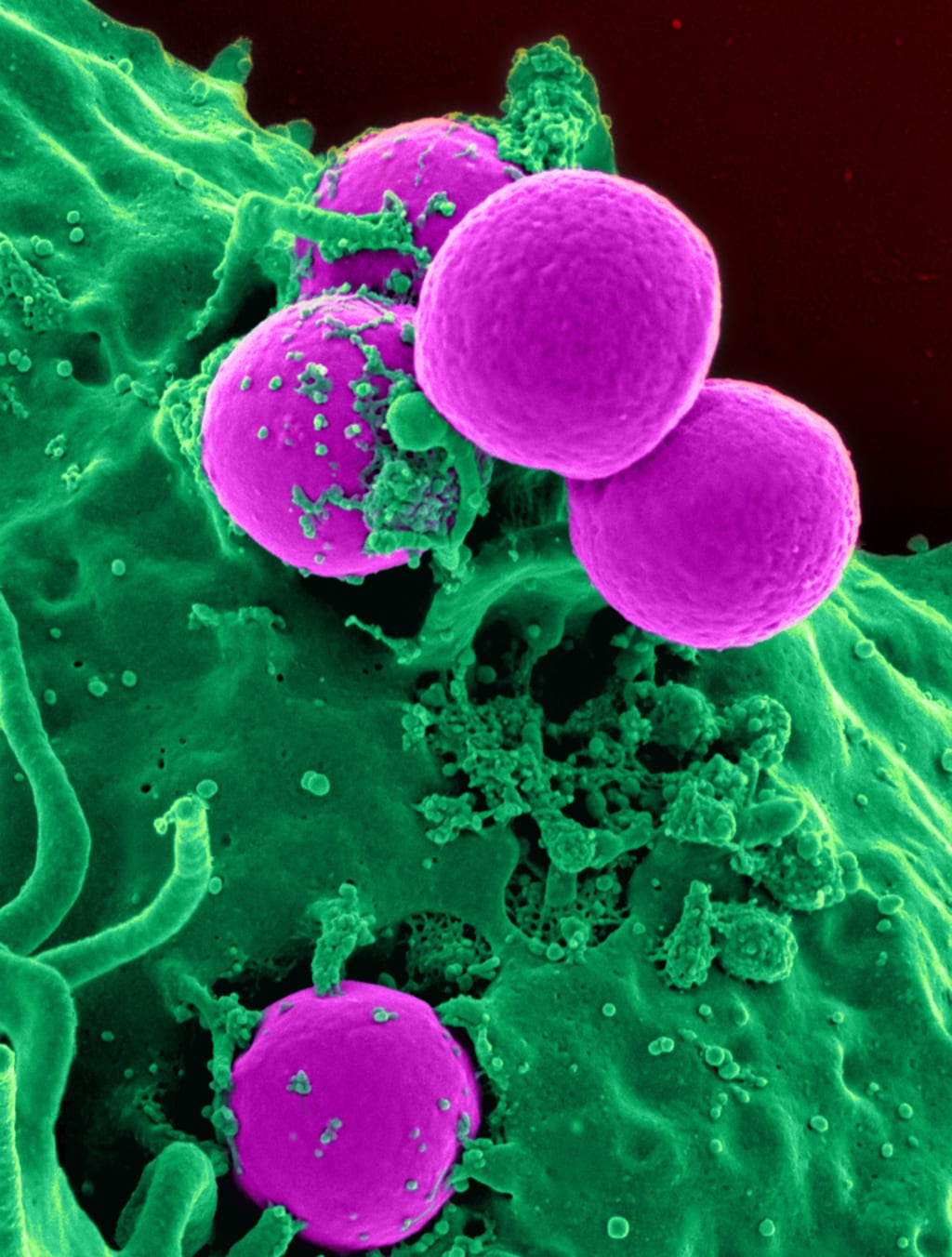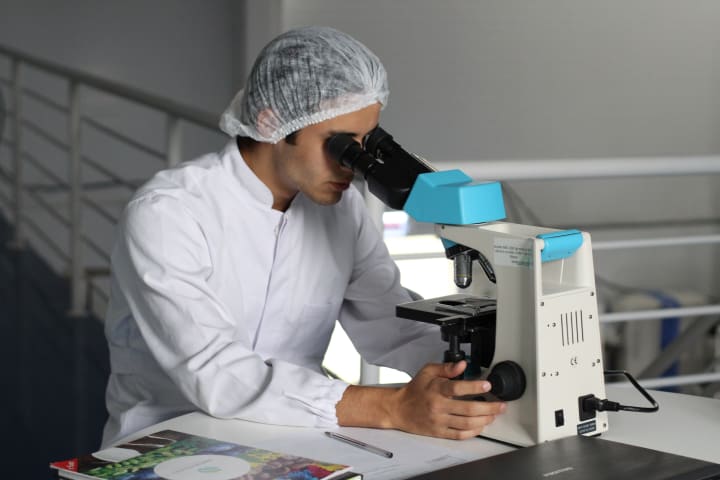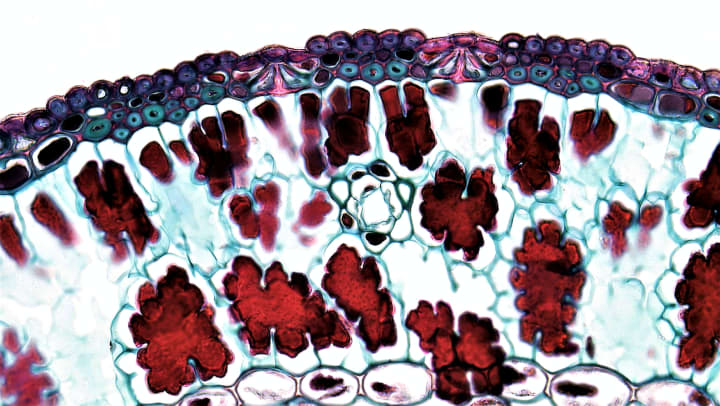The Future of Medicine: How Artificial Cells Could Revolutionize Healthcare
The Secret to Revolutionizing Healthcare? Unveiling the Potential of Artificial Cells for the Future of Medicine!

Cells are the fundamental building blocks of life, with their extraordinary structure directly influencing their intricate functions. However, recent advancements in the field of science have paved the way for the development of artificial cells and cell-like materials, which brings the potential for groundbreaking changes in various industries, particularly in healthcare. In this blog post, we will delve into the realm of artificial cells, exploring their potential uses and considering whether they hold the ability to substitute their natural counterparts.
Potential Uses of Artificial Cells:
Medical Applications:

One of the most promising areas where artificial cells have gained attention is in the field of medicine. These synthetic alternatives show great potential for revolutionizing various aspects of healthcare and treatment modalities. For instance, artificial cells can be effectively used as drug delivery systems, whereby pharmaceutical compounds can be encapsulated within the cell-like structures, allowing for targeted and controlled drug release to specific areas of the body.
Tissue engineering and regenerative medicine are other areas that could significantly benefit from the use of artificial cells. These technologies have the potential to enable the creation of artificial organs or tissues that can be implanted into patients, offering the promise of overcoming the limitations of organ transplantation. Additionally, artificial cells could play an integral role in developing innovative targeted cancer therapies, providing a unique avenue for drug delivery and precision medicine.
Industrial Applications:

It's not just the medical field that could benefit from the use of artificial cells; they also hold immense potential for various industrial applications. One such application is in the field of bioremediation and environmental cleanup, where artificial cells can be engineered to target specific pollutants and efficiently remove them from contaminated environments. This technology has the potential to transform the way we deal with environmental crises, improving the health of our planet.
Furthermore, artificial cells can find useful applications in the industrial production of chemicals. By manipulating the synthetic cells' structure and genetic composition, scientists can engineer them to carry out complex chemical reactions, potentially reducing the dependence on traditional manufacturing processes and unlocking new methods of sustainable production.
Energy production is another area that could greatly benefit from artificial cells. By utilizing these cells, researchers envision the potential for more efficient production of biofuels, harnessing the power of living systems to create sustainable and environmentally friendly energy sources.
Advantages of Artificial Cells:

As with any novel technology, artificial cells come with their own set of advantages and strengths that set them apart from their natural counterparts.
Enhanced control and programmability: Artificial cells offer a level of control and programmability that is difficult to achieve with natural cells. Scientists can fine-tune the artificial cells' properties and behaviors by manipulating their genetic composition, enabling precise adjustments to meet specific needs in various applications.
Increased durability and stability: Unlike natural cells, which are susceptible to degradation, artificial cells can be engineered to withstand harsh conditions and exhibit increased durability. This feature makes them highly suitable for applications requiring long-term stability and performance.
Lower risk of infection or rejection: One major advantage of artificial cells is their reduced risk of infection or rejection compared to natural cells. Since they are constructed from non-biological materials, the chance of immune responses or infections is significantly minimized, ensuring safer and more reliable applications.
Scalability and mass production: Artificial cells can be manufactured through scalable and reproducible processes, allowing for large-scale production. This trait makes them attractive for extensive use in various industries, offering cost-effective solutions without compromising quality.
Drawbacks of Artificial Cells:

While the potential benefits of artificial cells are substantial, it is essential to acknowledge the associated drawbacks and limitations that need to be addressed for their widespread adoption.
Lack of complexity and functionality: Artificial cells, despite their advancements, still lack the complexity and functionality of natural cells. Natural cells have evolved over millions of years to perform intricate tasks, while artificial cells are still in their early stages of development. Achieving comparable complexity remains a challenge and an area for further research.
Ethical concerns: The emergence of artificial cells raises ethical concerns. As with any powerful technology, there is a risk of misuse or unintended consequences. Ethical considerations surrounding the creation and use of artificial cells, such as the potential for unethical experimentation or implications on the concept of life itself, require careful examination and regulation.
Uncertainty regarding long-term safety and environmental impact: Since artificial cells are a relatively new field of study, there is limited knowledge about their long-term safety and environmental impact. It is crucial to conduct thorough research and extensive testing to ensure that their use does not pose unforeseen risks to human health or the ecosystem.
Cost and limitations in manufacturing processes: Although artificial cells offer significant promise, their current cost of production and manufacturing limitations can hinder their widespread adoption. Addressing these hurdles is essential to ensure accessibility and affordability in applying artificial cells for various applications.
Assessing Substitution Potential:
Evaluating the potential of artificial cells to substitute their natural counterparts necessitates careful analysis and comparison.
Compatibility: One key aspect to consider is the compatibility of artificial cells with natural systems. Artificial cells should seamlessly integrate with biological processes without causing harm or disrupting normal physiological functions.
Performance and efficiency: Comparing the performance and efficiency of artificial cells versus natural cells is critical in determining their substitutability. Artificial cells need to exhibit comparable or superior functionality and reliability to justify their use as substitutes.
Acceptability and desirability: Another crucial factor is the acceptability and desirability of artificial cells among professionals and the public. Ethical, societal, and cultural factors will influence the acceptance and adoption of these synthetic alternatives.
Ongoing research and potential breakthroughs: It is important to acknowledge that artificial cells are still a rapidly evolving field. Ongoing research and potential breakthroughs could address the current limitations and bridge the gap between natural and artificial cells, making the substitution a more viable possibility in the future.

The potential of artificial cells to revolutionize healthcare and various industries is undeniable. From targeted drug delivery to environmental cleanup, these synthetic alternatives offer numerous advantages, although they still face challenges before becoming widely implemented. While artificial cells currently fall short in terms of complexity and functionality compared to natural cells, ongoing research and technological advancements hold the promise of bridging this gap. As the field progresses, it is vital to consider the compatibility, performance, acceptability, and ongoing developments in assessing the substitution potential of artificial cells in various applications. Responsible development and careful consideration of ethical implications will ultimately shape the future of this groundbreaking technology.
***
If you enjoyed our story, we kindly ask for your support. Please give it a like and leave a comment, and don't forget to subscribe to our channel for our newest stories. If you're feeling generous, you can also send us a tip to help us dedicate more time to creating and writing stories for you. Every contribution will go towards funding a special project. Find out more information here.
Thank you sincerely for your support.
For comprehensive health information, check out Ozeya Life. They offer online services and cater to Vancouver Island. They are also available for specific contracts and events. Contact them to learn more.
If you have a specific topic or question you'd like us to cover in our future stories, please feel free to leave a comment. We provide tutoring services in science, biology, and anatomy, benefiting children, college students, and university students alike. If you need assistance, reach out to us.
Email us at [email protected].
About the Creator
Hippy vagabond
We are the dynamic duo of imagination and wellness, your go-to source for captivating fiction stories and soul-stirring poetry. We transport you to worlds where dreams come alive. Join us on a beautiful journey of wonders and well-being.






Comments (1)
Technology is at the heart of the developments mentioned in this post. As I bring you good news to all learners. TakeMyTeasForMe can assist you in crafting compelling essays, research papers, and any scholarly document you need. Reach out today at https://takemyteasforme.com/ and enjoy the benefits